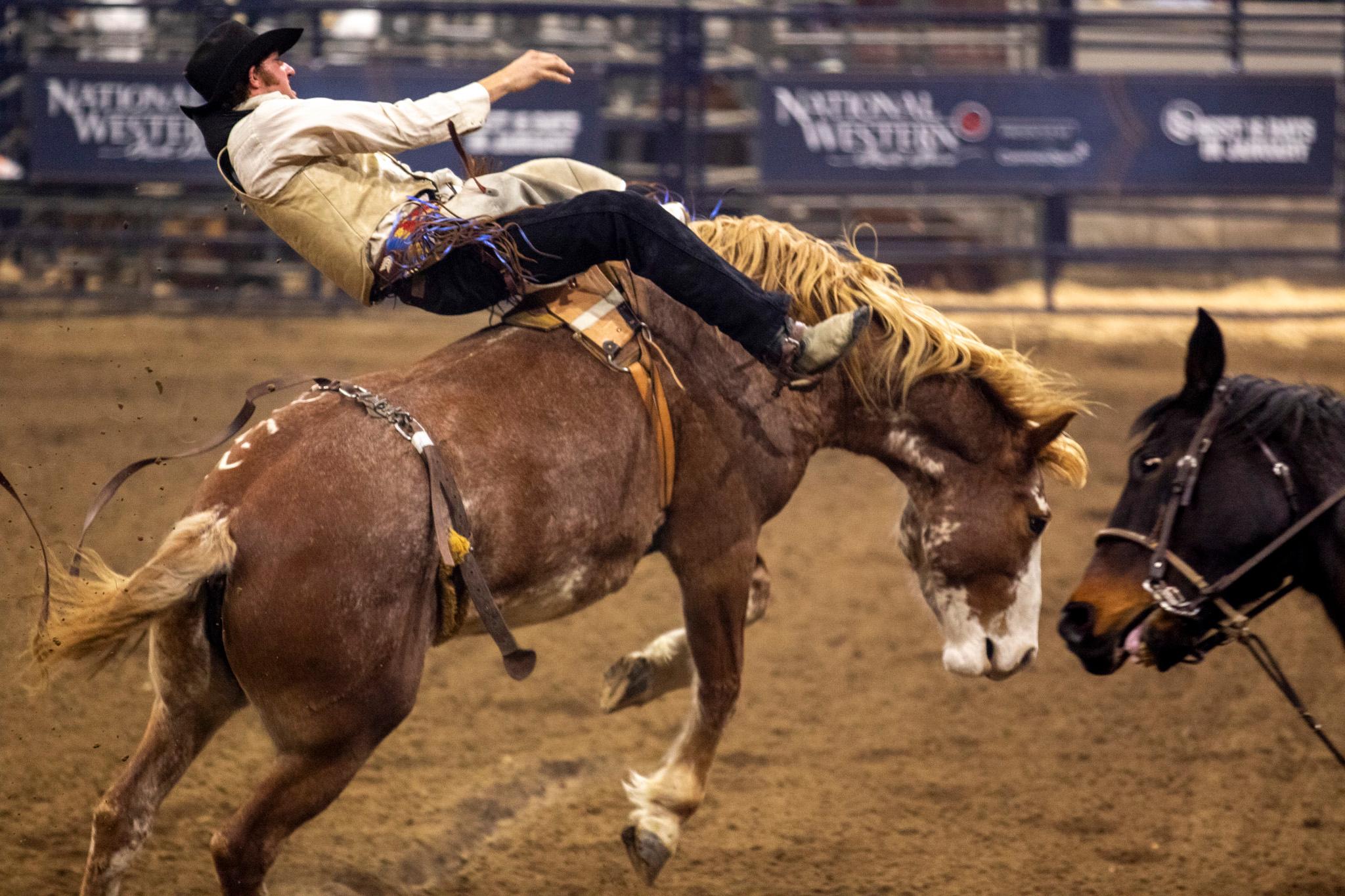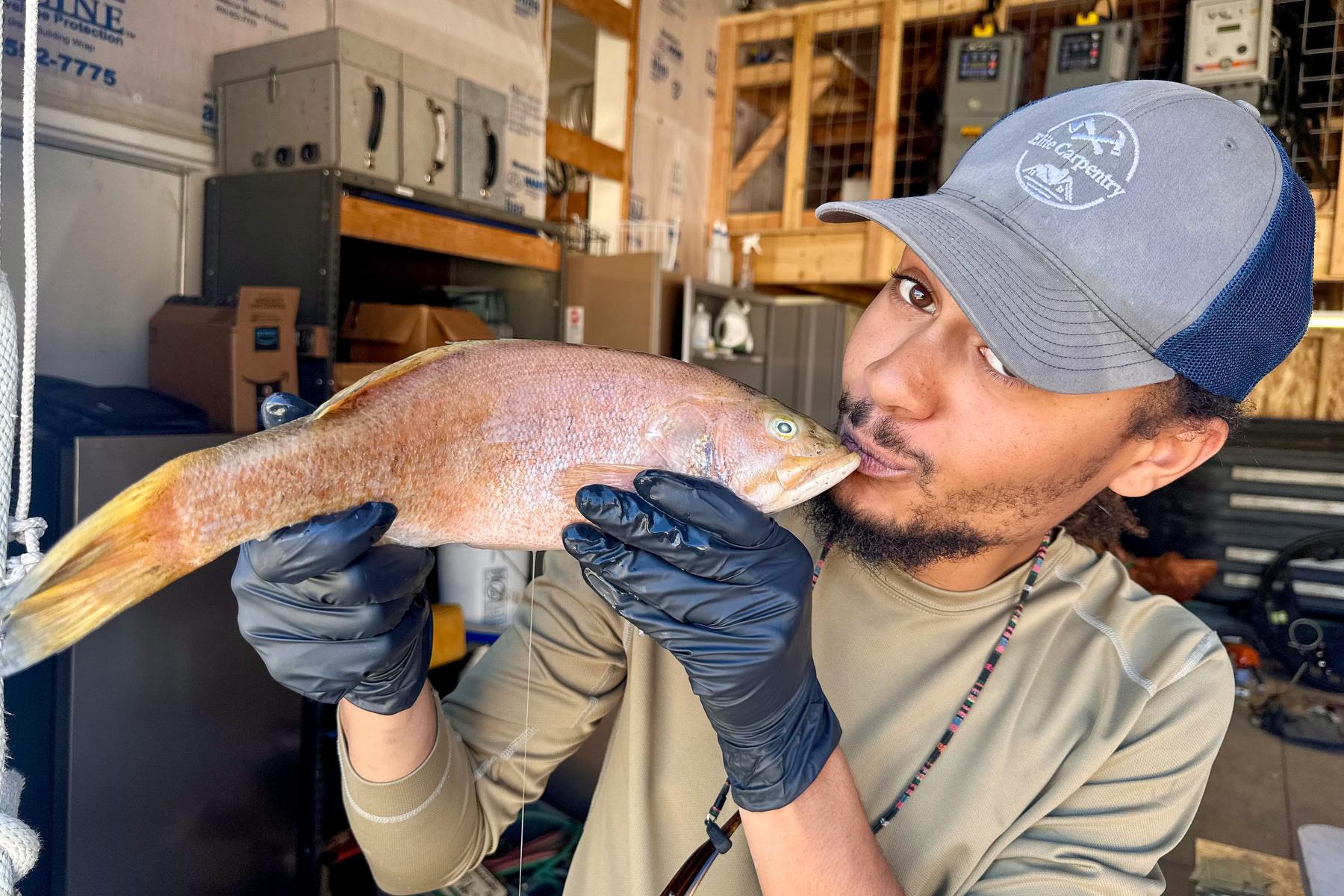
Updated at 1:43 p.m. on Tuesday, Sept. 9, 2025.
The state is on a campaign to remove invasive smallmouth bass, which harm ecosystems and eat other fish, threatening native species.
Colorado Parks and Wildlife runs a fishing tournament every other summer to encourage anglers to remove as many smallmouth bass as possible from a vital Western Slope reservoir. The top prize for the Ridgway Reservoir Smallmouth Classic is $10,000.
The winner this year was none other than Chase Nicholson — for the fifth time. A dedicated angler who is also passionate about the environment, Nicholson believes in the event’s mission.
“I think Parks and Wildlife is doing a great job to get on top of it before it becomes unstoppable,” Nicholson said.
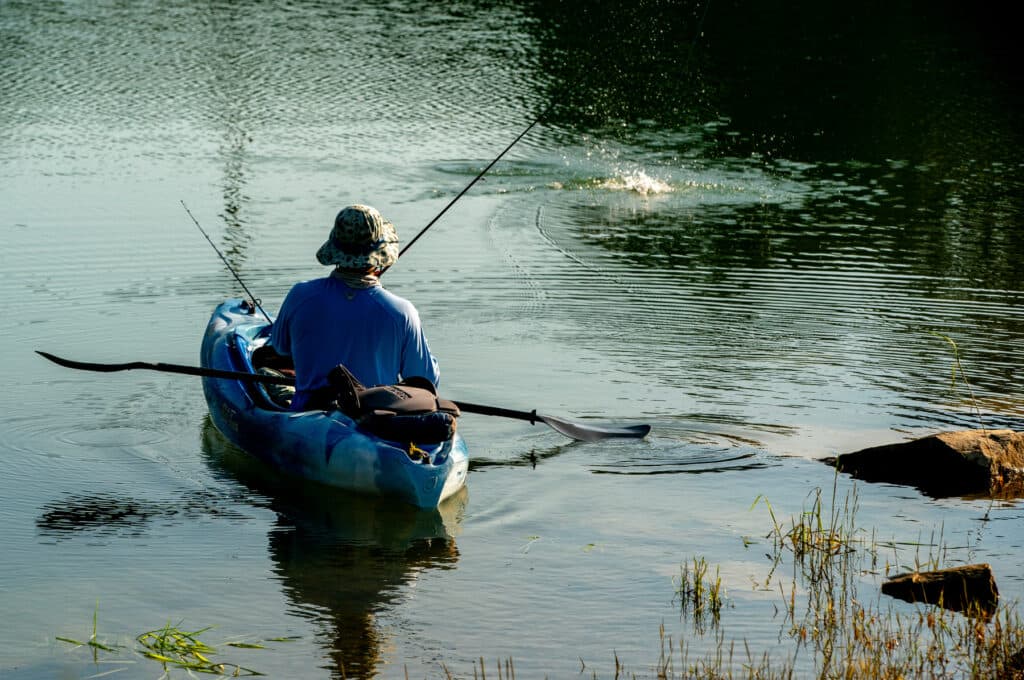
After CPR News covered the tournament in July, a listener wrote in to ask: What happens to all of the dead fish?
“I hate to think of them simply as waste,” they said.
The answer is complicated. Basically, scientists get a lot of value from the thousands of fish caught by volunteer anglers, but ultimately, most of them are disposed of.
Sixty anglers competed in this year’s fishing rodeo, catching nearly 5,000 fish. They left them at a dropbox set up by Parks and Wildlife on the banks of the reservoir. It’s basically a big, locked chest freezer where fishers can drop their bagged fish, but no one can take anything out.
Smallmouth bass were originally brought to the state for sport fishing — they’re fast and aggressive and fun to fish for. And a lot of people like to eat them, too.
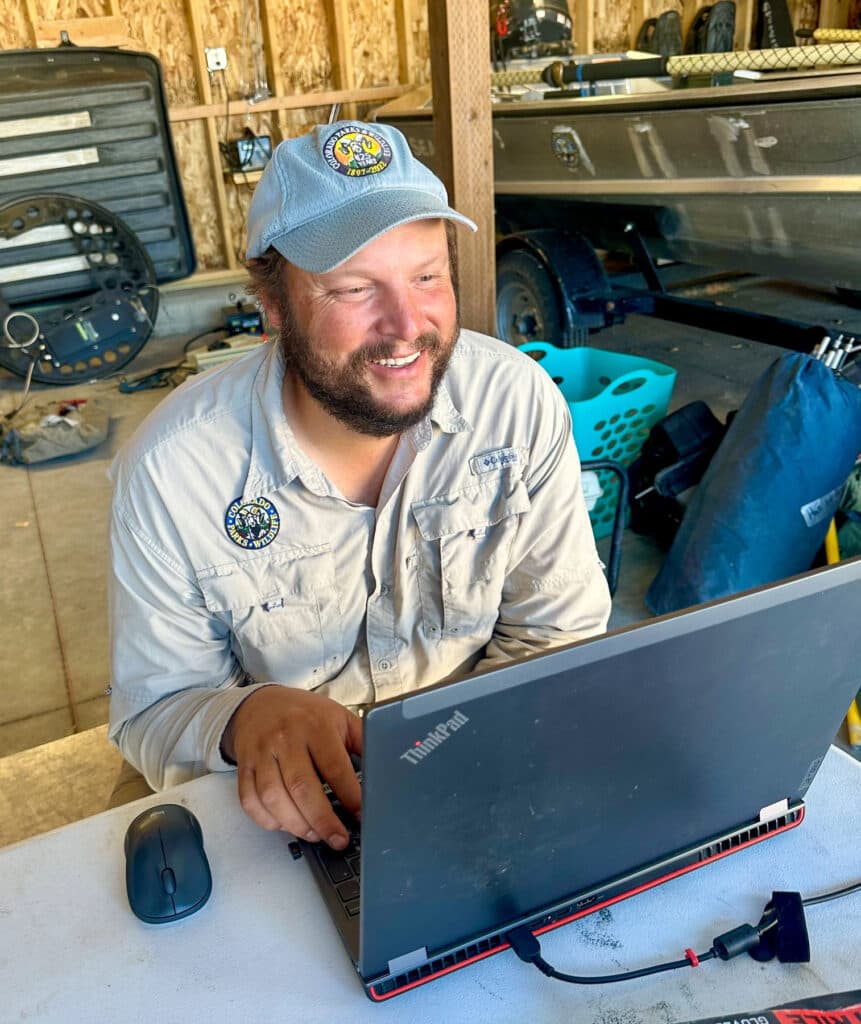
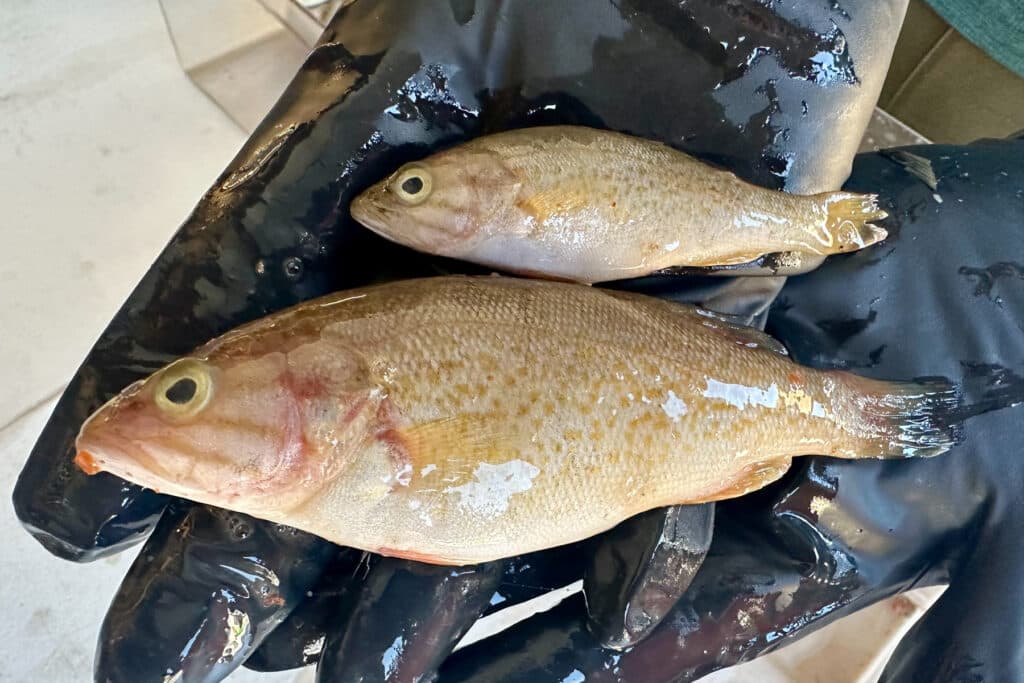
Parks and Wildlife aquatic biologist Eric Gardunio likes to make fish tacos with Tajin seasoning and lime.
“Just saute that meat up,” he said. “They're a pretty diverse fish to eat. You can really cook 'em a lot of different ways, and they're tasty.”
At the end of the tournament, Parks and Wildlife staff empty out the dropbox and take all of the frozen dead fish to their office in Montrose.
There, state biologists count and catalogue them all inside of an open-air warehouse. Seasonal technician Cameron Brown unpacked them to thaw them out, peeling stinky, soggy half-frozen fish blobs and dropping them in a big silver tub of water.
It smelled like a fish market gone wrong, but Brown is kind of into it. “You got to like it. You kind of have to get down with it,” he said.
Then, biological science technician Aarohi Barman measures them.
It’s pretty nasty work.
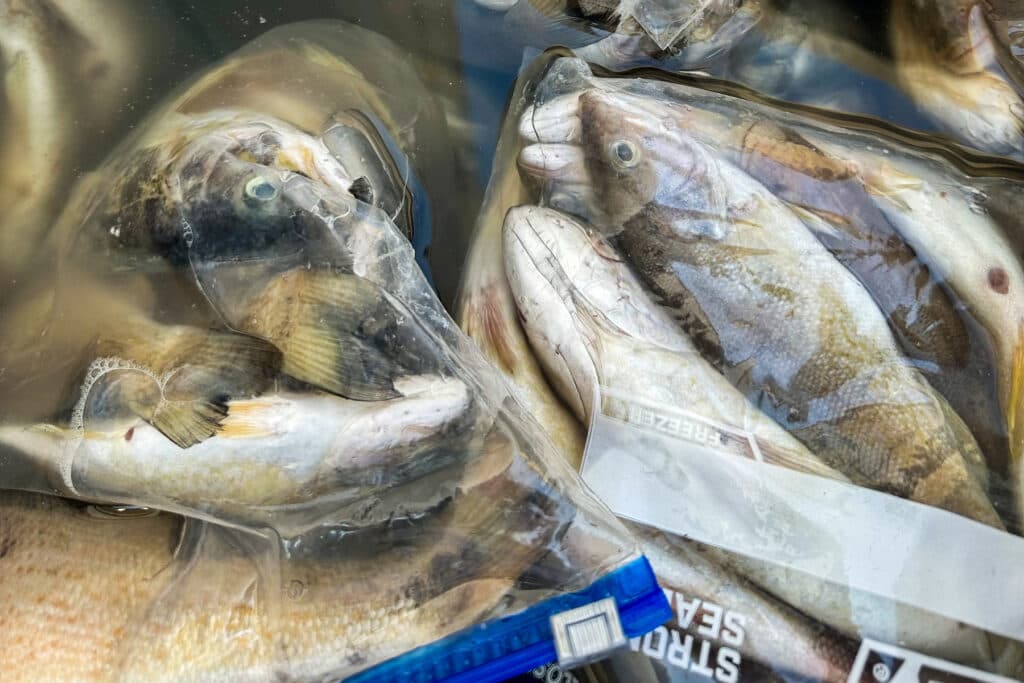
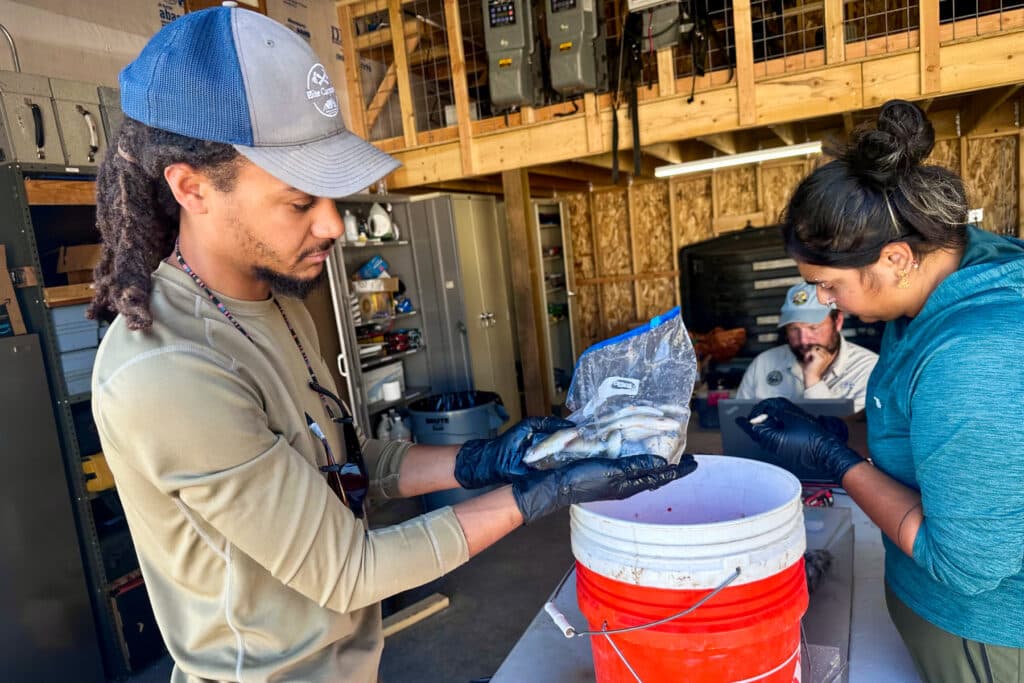
“All kinds of fish juices …” Barman said, as she took each silvery green fish and stretched them out as long as she could in a plastic trough with a ruler on one side, measuring them to the exact millimeter.
Again and again and again.
“It does feel a little bit daunting when you’re going through these fish one at a time,” Gardunio said.
After almost a week — the final count: nearly 5,000 fish. It took anglers a combined 1,200 hours to catch them.
Once the dirty job of counting and measuring them is done, the fish are packed up and shipped off to the Parks and Wildlife office in Fort Collins to be studied.
Smallmouth bass are a big problem in the Mountain West. Introduced in Colorado in the 1950s, they were stocked in lakes and reservoirs for fishing. But they quickly flourished, threatening native species — at all life stages — they will eat other fish whole.
They’ve now reached the Colorado River, and federal and state agencies across the West have teamed up to attempt to eradicate them.
Parks and Wildlife is contributing to that effort by continuing to study the fish. And that’s what they do in Fort Collins when the Ridgway Reservoir bass arrive. There, researchers try to learn from the dead fish — about their sexual maturity, life cycle, how many eggs they lay, and other information that will help them better combat the species in the future.
After all that, the fish make one final trip … to the local landfill.
Gardunio, who started the event a decade ago, said that with every successful tournament, there is some sadness, too. “It would be easy to feel bad about the number of dead fish,” he said.
Instead, he keeps his focus on the native fish they are saving by getting rid of smallmouth bass — such as the endangered razorback sucker and Colorado pikeminnow. “We’re definitely playing a long game here,” he said.
With fishermen like Chase Nicholson on their side, they might just stand a chance against this slippery foe.
Editor’s note: A previous story misstated the Colorado state fish. It has been updated.

Colorado Wonders
This story is part of our Colorado Wonders series, where we answer your burning questions about Colorado. Curious about something? Go to our Colorado Wonders page to ask your question or view other questions we've answered.





